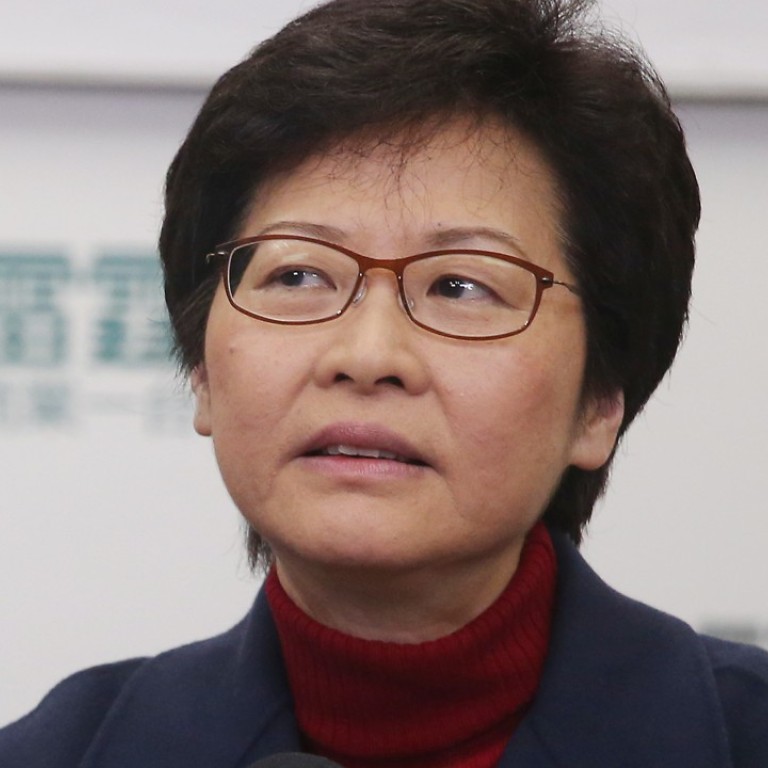
Letters to the Editor, June 5, 2017
Not optimistic about new administration
Complaints about the poor standard of taxi services in Hong Kong and the introduction of Uber did not cause our government to shake up the taxi industry and insist that standards improve. Instead, the plans are to introduce a premium service for which we will pay more.
Criticism that public hospitals’ accident and emergency services are being misused led to the patient’s fee being increased from HK$100 to HK$180.
Complaints about the amount of illegal parking have led to a proposed increase in parking fines from HK$320 to HK$400, as if the wealthy are really going to be bothered, particularly when you compare the cost of paying parking fines to the cost of parking legally in one of our multi-storey car parks.
And to solve complaints about the so-called housing crisis, the government introduces measures to make it more expensive to borrow money for a second apartment and yet people are still queuing up to add to their collection.
We can see a bit of a pattern here. Charging more will solve all our problems, or at least that’s what the government wants us to think. However, fines are not the answer.
The government seems unable, or unwilling, to analyse the real cause of problems and lacks the imagination and the will to stand up against vested interests and the rich and powerful. In a bizarre column, Alex Lo argued that it is right to look at building houses in country parks, despite there being plenty of other land on which to build, because the government is too spineless to stand up against the landowners and the Heung Yee Kuk (“Let’s get realistic about Hong Kong’s housing shortage”, May 30).
With Carrie Lam Cheng Yuet-ngor’s cabinet-in-waiting likely to deliver more of the same, the situation is not encouraging. We need a strong government with imagination that is prepared to fight for what is right, but that probably would not go down too well with Beijing.
Andy Statham, Happy Valley
Materialism’s negative side causes waste
Many Hongkongers have materialist attitudes when it comes to shopping.
It is a negative aspect of materialism, with some people who are well-off using shopping to flaunt their wealth.
They will often buy clothes they will never wear and simply discard them, which is very wasteful and bad for the environment. There needs to be a change of attitude by people who shop in this way.
Cheng Sing-yik, Sheung Shui
Education fund has supported e-learning
The Quality Education Fund was established with the aim of promoting quality school education at all levels, that is, kindergarten, primary, secondary and special education, through funding worthwhile initiatives on a pilot basis. The fund encourages projects that support innovation and/or new development, enrich students’ learning experience and suit the specific needs of students, teachers and contexts of individual schools or the school sector as a whole in accordance with the government’s education policies.
The projects should be one-off and non-profit making. Projects which build on and further expand the new ideas or practices that have been generated from projects previously funded by the Quality Education Fund are also welcome.
The role of the fund is basically different from that of an incubator fund, which involves private capital and is profit-making in nature.
The Quality Education Fund has been supporting the promotion and implementation of e-learning. “Using e-learning (IT) for Effective Learning” is one of the priority themes. Over the years, more than 40 per cent of the successful applications were IT-related.
Projects funded by the Quality Education Fund have produced various high-quality education resources and deliverables.
These resources and deliverables are owned by the fund to facilitate editing, repackaging or commercialisation for wider dissemination.
Professional agencies are commissioned by the fund to conduct theme-based commercialisation and redevelopment work to enhance sustainability.
William Chan, senior executive officer, Quality Education Fund Secretariat, Education Bureau
Teach students the importance of tolerance
I definitely agree with the global movement promoting same- sex marriage.
Citizens all over the world, including Hong Kong, should be entitled to marry the person they love.
Many citizens here still have misconceptions about same-sex marriage and about gay and lesbian citizens and so oppose a change in the law, to legalise these marriages.
There should be greater education and discussion of these issues in schools so that students can grow up without these prejudices and respect the gay and lesbian community.
These are issues which should be discussed in schools and included in textbooks so that, eventually, same-sex marriage is widely accepted in society.
I welcome celebrities like the singer, Denise Ho Wan-sze, standing up in defence of the rights of the lesbian, gay, bisexual, transgender community. I encourage gay and lesbian citizens to ensure that their voices are heard.
And I hope that education will be used to help this city move forward and make progress.
Teresa Ng, Hang Hau
Always consult public about major projects
I think Hong Kong and its citizens will benefit from having the proposed Palace Museum constructed here.
However, there was not an adequate public consultation process and many people are not happy with the way in which chief executive-elect Carrie Lam Cheng Yuet-ngor dealt with this issue while she was still chief secretary.
Hong Kong is an international and democratic city.
It is of the utmost importance for our leaders to listen closely to public opinion on important issues such as a new museum, especially when a proposed project will involve spending a lot of taxpayers’ money.
Walter Chong, Tseung Kwan O

